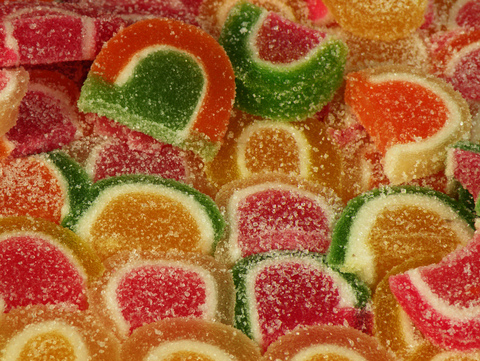Sugar and Your Orthodontic Treatment
November 2nd, 2018

One word no one likes to hear is “cavity!”
For those patients of ours wearing braces, hearing that word is especially problematic, considering that delaying any dental work may result in delaying treatment time.
We often blame candy as the culprit behind tooth decay, but other foods and drinks that kids consume can be just as harmful to their teeth, and can lead to cavities and tooth decay. Keeping your teeth or your child’s teeth from decay during treatment starts with a proper diet, and today, our team at Carolina Dental Specialists will explain the negative effects that candy and other treats, including peanut butter, raisins, fruit juice, and chewy fruit snacks, have on your child’s teeth as he or she undergoes orthodontic treatment. Keep in mind that half of your child’s sugar intake may be coming from beverages that he or she drinks. A major offender is soda, but be mindful of fruit juices as well.
While sugar is known to sit in your child’s teeth and in between and under brackets and wires after consumption, it is important to know sugar is not the only cavity-causing culprit. Carbohydrates, starches, acids, and any food that is chewy or sticks break down into sugars, and can promote tooth decay.
So, what are the alternatives?
Candy such as dark chocolate, sugar-free gum, or anything that contains xylitol, a sugar substitute, is not as harmful for your teeth as hard, chewy, or sticky sweets. Sugar-free gum or gum that contains xylitol are known to reduce levels of bacteria on teeth.
And if you’re still looking for something to snack on, we recommend cutting up easy-to-eat fruits and vegetables. You would also be surprised how much eating a banana or sipping on a glass of water helps you curb snack cravings.
If you’re one of those folks who just can’t stay away from sweets, we encourage you to brush your teeth immediately afterward and swish water in your mouth.
Whatever you eat, Dr. Robee Bailey Jr., DMD and our team want you to remember to brush often, floss regularly, and visit your general dentist as your treatment progresses. If you have any questions about sugary foods or drinks, please give us a call or ask us during your next adjustment visit!




 Website Powered by Sesame 24-7™
Website Powered by Sesame 24-7™
